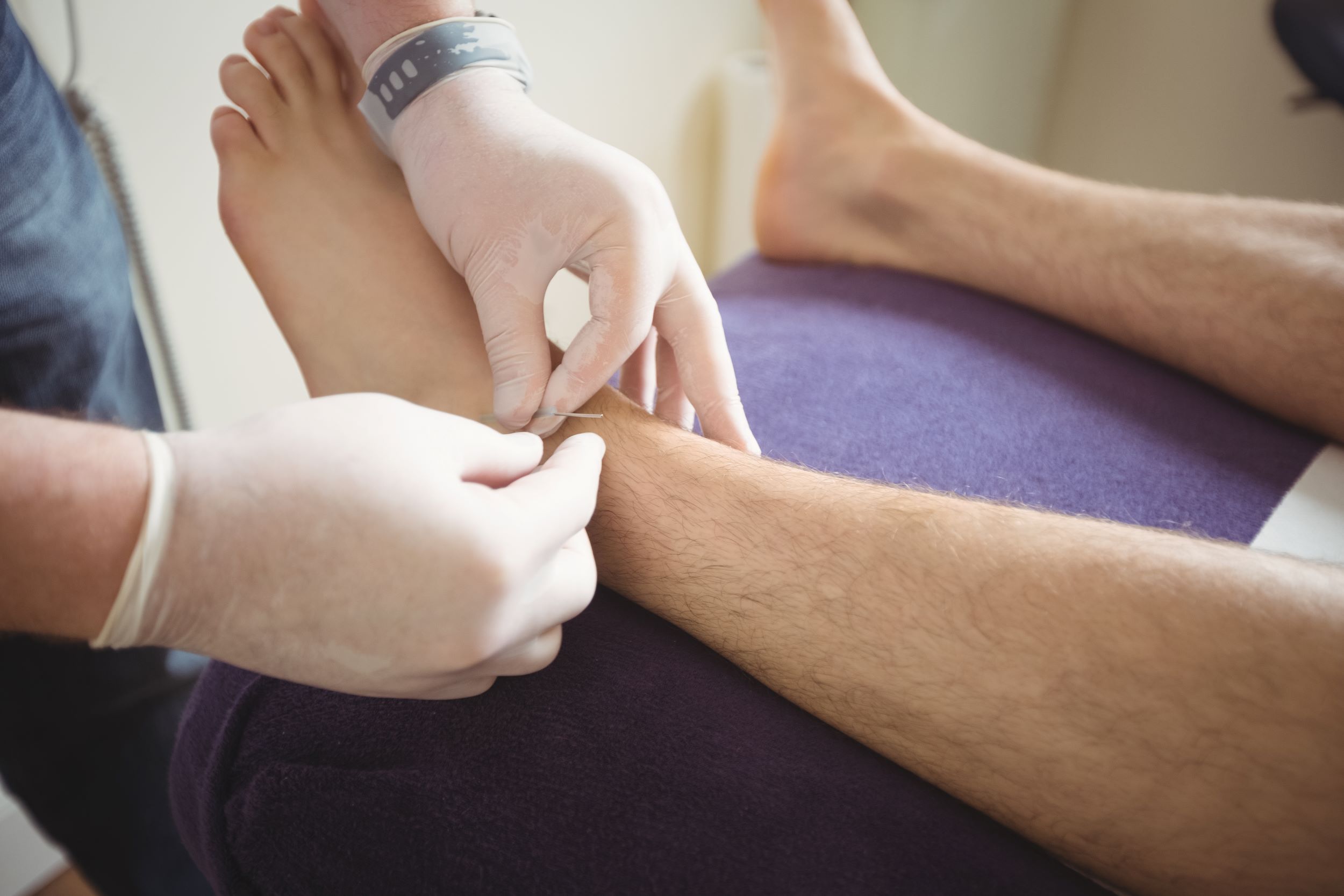Acupuncture, a traditional Chinese medicine practice, offers a wide range of benefits for senior health. As individuals age, they often experience various physical and mental health challenges. Acupuncture provides a holistic approach to senior care, addressing both the symptoms and underlying imbalances that can occur with age. Here are some extensive benefits of acupuncture for senior health:
1. Pain Management and Relief: Chronic pain is a common issue among seniors, often resulting from conditions such as arthritis, osteoarthritis, or musculoskeletal disorders. Acupuncture has been proven effective in reducing pain and improving mobility. By inserting thin needles into specific points on the body, acupuncture stimulates the release of endorphins, natural pain-relieving substances. This can provide significant relief for seniors dealing with chronic pain, allowing them to engage in daily activities with greater ease and comfort.
2. Enhanced Mental and Emotional Well-being: Aging can bring about increased stress, anxiety, and even depression. Acupuncture has a calming effect on the nervous system, promoting relaxation and reducing anxiety levels. It can also improve sleep quality, helping seniors to achieve restful and rejuvenating sleep. Acupuncture sessions stimulate the release of serotonin and other neurotransmitters, which can elevate mood and alleviate symptoms of depression. By supporting mental and emotional well-being, acupuncture contributes to a higher quality of life for seniors.
3. Improved Cognitive Function: Acupuncture has shown promise in enhancing cognitive function and supporting brain health in seniors. It can improve memory, focus, and mental clarity, which are vital for daily activities and maintaining independence. Some studies suggest that acupuncture may help with conditions such as dementia and Alzheimer’s disease by promoting blood flow to the brain, reducing inflammation, and protecting neural pathways. Integrating acupuncture into a senior’s healthcare routine can potentially slow cognitive decline and support brain vitality.
4. Boosted Immune System: As individuals age, their immune system may weaken, making them more susceptible to illnesses and infections. Acupuncture can strengthen the immune system by increasing the production of white blood cells and enhancing immune responses. This can lead to a reduced risk of common illnesses and faster recovery from ailments. By fortifying the body’s natural defenses, seniors can maintain their overall health and well-being.
5. Cardiovascular Health: Acupuncture can have positive effects on cardiovascular health for seniors. It has been shown to help regulate blood pressure, reduce hypertension, and improve circulation. By promoting proper blood flow, acupuncture supports heart health and reduces the risk of cardiovascular diseases. Seniors who incorporate acupuncture into their healthcare regimen may experience improved cardiovascular function and overall vitality.
6. Digestive Health: Seniors often encounter digestive issues such as indigestion, constipation, or a decrease in appetite. Acupuncture can help alleviate these symptoms by regulating the digestive system. It can enhance gastric motility, improve nutrient absorption, and promote overall digestive function. Seniors who receive acupuncture treatments may experience relief from digestive discomfort and maintain a healthier gastrointestinal system.
7. Enhanced Balance and Mobility: Falls and related injuries are a significant concern for seniors. Acupuncture can contribute to improved balance, coordination, and mobility, reducing the risk of falls. By targeting specific acupuncture points associated with the musculoskeletal system, acupuncture helps to strengthen muscles, improve joint stability, and enhance proprioception. Seniors who incorporate acupuncture into their wellness routine may experience better balance, reduced falls, and increased confidence in their physical abilities.
8. Promotion of Overall Well-being and Vitality: Acupuncture supports seniors in maintaining overall well-being and vitality. By addressing physical ailments, reducing pain, improving mental health, and enhancing various bodily functions, acupuncture contributes to a higher quality of life. Seniors who receive acupuncture treatments often report increased energy levels, improved mood, and an overall sense of well-being. Acupuncture can be an essential component of a comprehensive wellness program for seniors
Pain Management and Relief
Pain management and relief are key benefits of acupuncture, making it a valuable treatment option for individuals seeking natural and holistic approaches to pain relief. Here’s an in-depth look at how acupuncture helps with pain management and provides relief:
1. Addressing Various Types of Pain: Acupuncture can effectively alleviate both acute and chronic pain. It has been widely used to manage pain associated with conditions such as arthritis, fibromyalgia, migraines, back pain, neck pain, sciatica, and more. By targeting specific acupuncture points, the treatment stimulates the nervous system, releases endorphins (natural painkillers), and modulates pain signals, leading to pain reduction.
2. Reduction of Inflammation: Inflammation is often a contributing factor to pain. Acupuncture helps to reduce inflammation by promoting blood circulation and the release of anti-inflammatory substances in the body. By addressing the root cause of pain, acupuncture provides long-term relief and reduces reliance on medications that may have side effects.
3. Release of Endorphins and Natural Painkillers: Acupuncture triggers the release of endorphins, which are neurotransmitters that naturally alleviate pain and induce feelings of well-being. These endorphins work by binding to opioid receptors in the brain and spinal cord, effectively reducing pain perception. By stimulating the production of endorphins, acupuncture offers natural pain relief without the need for pharmaceutical interventions.
4. Gate Control Theory: Acupuncture influences the gate control theory of pain, which suggests that the sensation of pain can be regulated by other sensory stimuli. By activating specific acupuncture points, the treatment stimulates nerve fibers that block pain signals from reaching the brain. This mechanism effectively closes the “gate” for pain signals, providing relief and reducing the intensity of pain sensations.
5. Relaxation of Muscles and Tissues: Muscular tension and tightness often contribute to pain. Acupuncture helps to relax muscles and tissues by increasing blood flow to the affected areas. The improved circulation brings oxygen and nutrients to the tissues, promoting healing and reducing muscle spasms. By relaxing tense muscles, acupuncture reduces pain and enhances mobility.
6. Individualized Treatment Approach: Acupuncture treatments are highly individualized, taking into account the specific type and location of pain, as well as the overall health of the individual. Acupuncturists assess the patient’s condition and create a personalized treatment plan, targeting the acupuncture points that will provide the most effective pain relief. This tailored approach ensures that the treatment addresses the unique needs of each individual, optimizing pain management outcomes.
7. Integration with Conventional Pain Management: Acupuncture can be used as a complementary therapy alongside conventional pain management approaches. It can reduce the reliance on pain medications, minimizing the potential side effects associated with long-term drug use. Acupuncture can also enhance the effectiveness of other pain management techniques, such as physical therapy, chiropractic care, or massage therapy, by reducing pain and improving the body’s response to those treatments.
8. Non-Invasive and Low-Risk: Acupuncture is a non-invasive treatment option for pain management, making it a favorable choice for individuals who prefer to avoid invasive procedures or medications. The risk of adverse effects from acupuncture is minimal when performed by a licensed and trained acupuncturist. It is generally well-tolerated, with rare side effects, such as mild bruising or temporary soreness at the needle insertion sites.
Overall, acupuncture provides a safe and effective approach to pain management and relief. By targeting the underlying causes of pain and promoting the body’s natural healing processes, acupuncture offers a holistic and drug-free solution for individuals seeking long-term pain relief and improved quality of life.
Enhanced Mental and Emotional Well-being
Enhanced mental and emotional well-being is a significant benefit of acupuncture, as it addresses the interconnectedness of the body and mind. Acupuncture treatments can promote emotional balance, reduce stress, and improve overall mental health. Here’s a comprehensive look at how acupuncture contributes to enhanced mental and emotional well-being:
1. Stress Reduction: Acupuncture has a calming effect on the nervous system, helping to reduce stress levels. By stimulating specific acupuncture points, the treatment activates the body’s relaxation response, leading to a decrease in stress hormones such as cortisol. This can help individuals feel more relaxed, centered, and better equipped to cope with daily stressors.
2. Anxiety and Depression Support: Acupuncture is increasingly recognized as a valuable therapy for anxiety and depression. It can help regulate the release of neurotransmitters, such as serotonin and dopamine, which play key roles in mood regulation. Acupuncture sessions promote the production of these “feel-good” chemicals, helping to alleviate symptoms of anxiety and depression and improve overall emotional well-being.
3. Improved Sleep Quality: Many individuals, particularly seniors, struggle with sleep issues that can impact mental health. Acupuncture can improve sleep quality by regulating the body’s internal clock, promoting relaxation, and reducing insomnia symptoms. By addressing underlying imbalances that may disrupt sleep patterns, acupuncture helps individuals achieve more restful and rejuvenating sleep, leading to improved mental clarity and emotional resilience.
4. Emotional Balance and Regulation: Acupuncture aims to restore balance to the body’s energy pathways, known as meridians, which can influence emotional well-being. By targeting specific acupuncture points, the treatment helps regulate the flow of energy and promotes emotional equilibrium. This can be particularly beneficial for individuals experiencing mood swings, irritability, or emotional imbalances.
5. Stress-Related Physical Symptoms: Stress often manifests as physical symptoms, such as tension headaches, muscle tightness, or digestive issues. Acupuncture addresses these physical manifestations of stress by promoting relaxation and reducing muscle tension. By alleviating stress-related physical symptoms, acupuncture indirectly supports mental and emotional well-being.
6. Mind-Body Connection: Acupuncture recognizes the intimate connection between the mind and body. By stimulating acupuncture points, the treatment helps to rebalance the body’s energy flow, which can have a positive impact on mental and emotional states. This mind-body approach of acupuncture supports overall well-being and fosters a sense of harmony between the body and mind.
7. Hormonal Balance: Hormonal imbalances can contribute to mood swings, irritability, and emotional instability. Acupuncture can help regulate hormone levels, particularly in women experiencing menopause or premenstrual symptoms. By balancing hormones, acupuncture can alleviate emotional symptoms associated with hormonal fluctuations, leading to improved emotional well-being.
8. Support for Trauma and PTSD: Acupuncture is increasingly recognized as a valuable adjunct therapy for individuals who have experienced trauma or have post-traumatic stress disorder (PTSD). Acupuncture sessions can help regulate the nervous system, reduce anxiety, and promote relaxation. This can be particularly beneficial for individuals seeking holistic approaches to manage the emotional and psychological effects of trauma.
Incorporating acupuncture into a wellness routine can provide valuable support for mental and emotional well-being. By addressing the root causes of imbalances, reducing stress, and promoting emotional resilience, acupuncture offers a holistic approach to nurturing mental health and fostering a greater sense of overall well-being.

